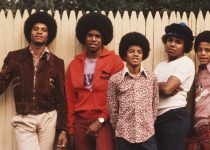From Glam-Pop to Balladry: The Rubettes’ Journey with Baby I Know
Baby I Know was one of the later singles by The Rubettes, the British pop group best remembered for their glam-pop anthem Sugar Baby Love. By this time, the band had begun to move away from their early doo-wop and bubblegum sound, experimenting with more mature themes and softer musical styles.
Baby I Know stands out as a heartfelt ballad about love, doubt, and the bittersweet acceptance of parting ways, showcasing the band’s versatility and emotional range.
The Rubettes – Baby I Know
Release Year: 1976
Writers: Alan Williams (band’s lead singer and songwriter)
Album: Featured on Baby I Know (1976)
Style: Soft pop ballad with rich vocal harmonies and emotional storytelling
Unlike the upbeat and catchy “Sugar Baby Love” (1974), which made The Rubettes an international name, Baby I Know shifts toward a more reflective tone. The instrumentation is stripped back compared to their glam-pop hits, highlighting the sincerity of the lyrics and the warmth of Alan Williams’ vocals.
The song resonates with themes of vulnerability — acknowledging mistakes, recognizing when love is fading, yet cherishing the bond that once was.
At its core, Baby I Know expresses:
The pain of realizing a relationship has reached its end
A mixture of regret and acceptance
The gentle yet emotional goodbye that comes when two people know it’s time to move on
The simple yet poignant lyrics, coupled with lush harmonies, make it one of The Rubettes’ more underrated but deeply touching tracks.
The Rubettes were formed in 1973 specifically to capitalize on the rising glam-pop trend — yet by the time of Baby I Know, they were exploring softer, more emotional sounds.
Alan Williams, who wrote Baby I Know, was also the lead voice behind many of the band’s later songs.
While Sugar Baby Love hit #1, Baby I Know never reached the same commercial success but remains a fan favorite for its lyrical depth.
The Rubettes often performed the song live in their 70s shows, where it became a highlight for its emotional intensity.

